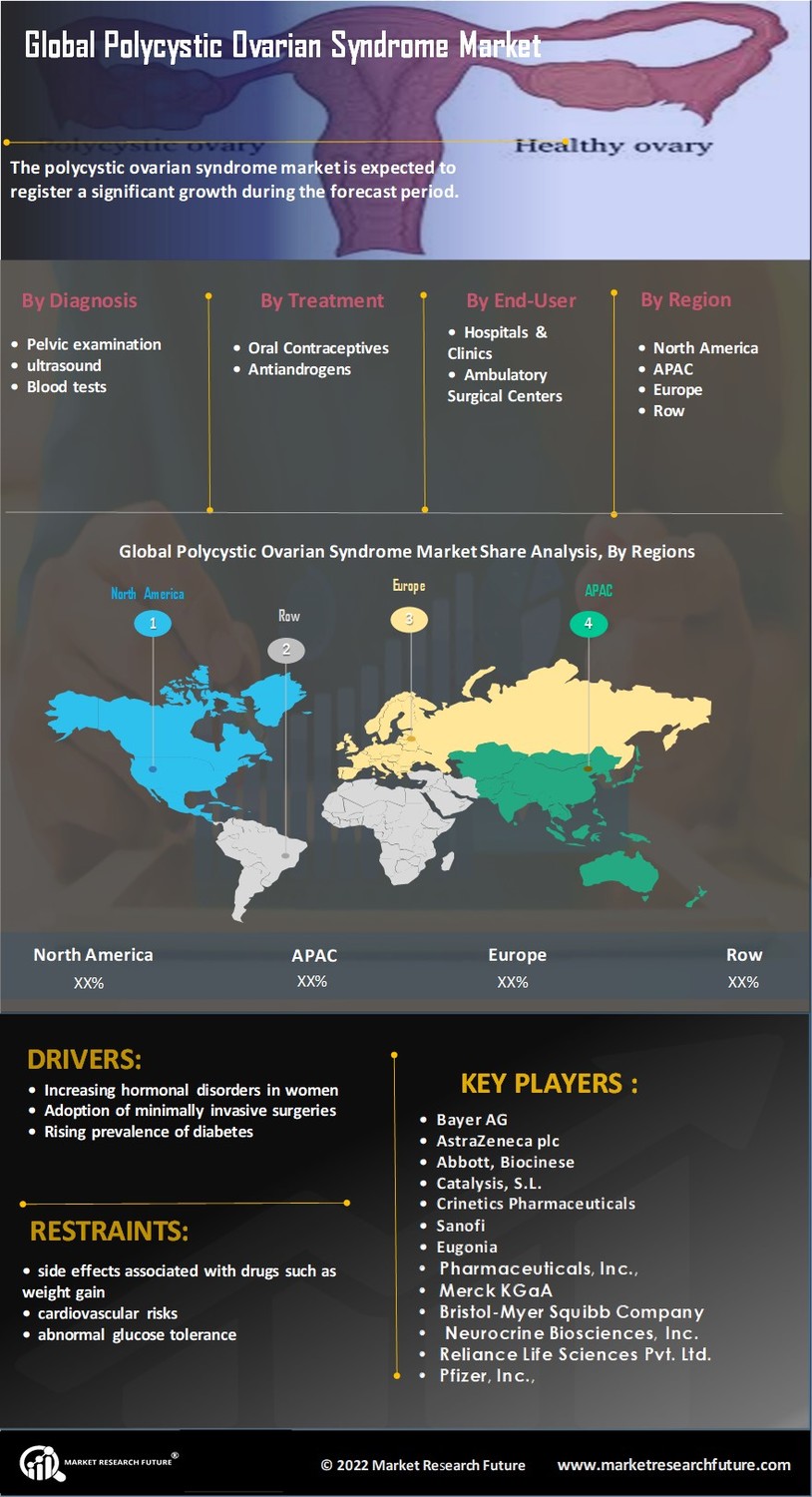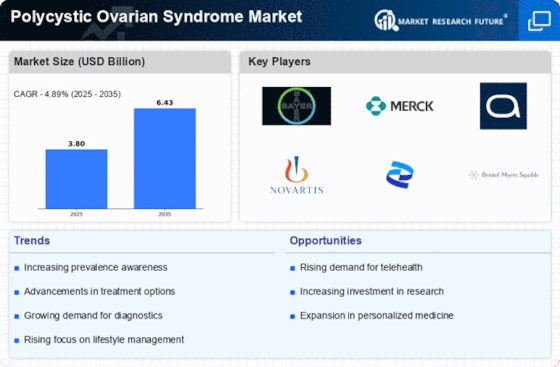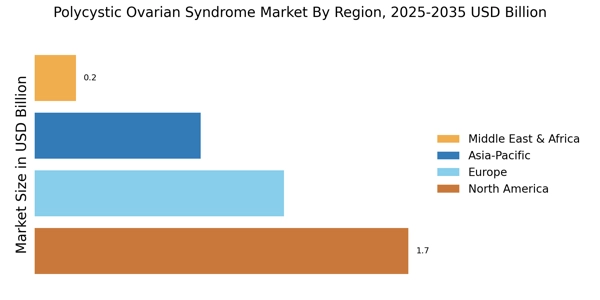Growing Demand for Fertility Treatments
The increasing demand for fertility treatments among women with Polycystic Ovarian Syndrome Market is a significant driver in the Polycystic Ovarian Syndrome Market. PCOS is one of the leading causes of infertility, prompting many affected women to seek assisted reproductive technologies. The market for fertility treatments, including in vitro fertilization (IVF) and ovulation induction therapies, has seen substantial growth, with estimates indicating a multi-billion dollar industry. As awareness of the link between PCOS and infertility rises, more women are likely to pursue these treatments, thereby driving market expansion. Furthermore, advancements in reproductive technologies and the increasing success rates of fertility treatments are likely to encourage more women to explore their options, further propelling the market forward.
Rising Focus on Women's Health Initiatives
The growing emphasis on women's health initiatives is influencing the Polycystic Ovarian Syndrome Market. Governments and health organizations are increasingly prioritizing women's health issues, including PCOS, which has historically been underrepresented in healthcare discussions. This shift is leading to enhanced funding for research, awareness campaigns, and educational programs aimed at both healthcare providers and patients. As more resources are allocated to understanding and managing PCOS, the market is expected to benefit from increased visibility and support. Additionally, the promotion of healthy lifestyle choices and preventive measures is likely to empower women to take charge of their health, potentially reducing the incidence of PCOS and its associated complications, thus impacting market dynamics.
Expansion of Treatment Options and Therapies
The expansion of treatment options and therapies for Polycystic Ovarian Syndrome Market is a crucial driver in the Polycystic Ovarian Syndrome Market. Recent years have witnessed the development of various pharmacological treatments, including hormonal therapies and insulin-sensitizing agents, which have shown promise in managing PCOS symptoms. The introduction of novel therapies, such as anti-androgens and lifestyle modification programs, has diversified the treatment landscape, catering to the unique needs of patients. This variety not only enhances patient adherence to treatment regimens but also encourages healthcare providers to adopt a more personalized approach to management. As the market continues to evolve, the availability of multiple therapeutic options is likely to attract more patients, thereby contributing to overall market growth.
Technological Advancements in Diagnostic Tools
Technological innovations in diagnostic tools are significantly impacting the Polycystic Ovarian Syndrome Market. Enhanced imaging techniques and hormonal assays have improved the accuracy of PCOS diagnoses, allowing for earlier intervention and better management of the condition. The introduction of non-invasive diagnostic methods has made it easier for healthcare professionals to identify PCOS, which is crucial given that many women remain undiagnosed. As diagnostic accuracy improves, the market is expected to expand, with more women receiving appropriate treatment. Additionally, the integration of artificial intelligence in diagnostic processes may further streamline patient assessment, leading to a more efficient healthcare delivery system. This evolution in diagnostics not only benefits patients but also encourages pharmaceutical companies to invest in research and development of targeted therapies.
Increasing Prevalence of Polycystic Ovarian Syndrome
The rising incidence of Polycystic Ovarian Syndrome Market (PCOS) is a pivotal driver in the Polycystic Ovarian Syndrome Market. Recent estimates suggest that approximately 6 to 12% of women of reproductive age are affected by this condition, leading to a growing demand for effective treatment options. The increasing awareness of PCOS symptoms and its long-term health implications has prompted more women to seek medical advice, thereby expanding the patient population. This trend is likely to fuel the market as healthcare providers and pharmaceutical companies respond to the need for innovative therapies and management strategies. Furthermore, the correlation between obesity and PCOS has been highlighted in various studies, indicating that lifestyle changes may also play a role in the management of the syndrome, thus influencing market dynamics.


















